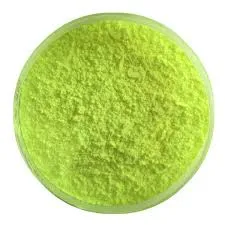The Role of Pharmaceutical Ingredients Manufacturers in the Healthcare Industry
The pharmaceutical industry is a complex and multifaceted field that plays a critical role in healthcare and the overall well-being of society. At the heart of this industry are pharmaceutical ingredients manufacturers, who are responsible for producing the raw materials needed to create medications and therapeutic products. These manufacturers operate in a highly regulated environment, ensuring that the ingredients they supply meet stringent quality and safety standards.
Pharmaceutical ingredients, also known as Active Pharmaceutical Ingredients (APIs), are the substances in a pharmaceutical drug that are biologically active and produce the intended therapeutic effect. They are a crucial component in the development of medications, as they determine the efficacy and safety of the final product. Therefore, the role of manufacturers that create these ingredients is paramount.
One of the most significant challenges faced by pharmaceutical ingredients manufacturers is ensuring consistent quality. The production of APIs involves complex chemical processes that must be meticulously controlled. Any variation in the production process can lead to discrepancies in the final product, which can have serious consequences for patient safety. To address these challenges, manufacturers must adhere to Good Manufacturing Practices (GMP), a set of rigorous guidelines established by regulatory bodies such as the U.S. Food and Drug Administration (FDA) and the European Medicines Agency (EMA). Compliance with these standards not only ensures the safety and quality of the ingredients but also fosters trust among consumers and healthcare providers.
In addition to quality assurance, pharmaceutical ingredients manufacturers must navigate the complexities of global supply chains. The sourcing of raw materials can present challenges, particularly when geopolitical factors, trade policies, and environmental regulations come into play. Manufacturers often rely on a network of suppliers for the raw materials necessary for production, which can lead to vulnerabilities in the supply chain. To mitigate these risks, many manufacturers are exploring vertical integration, where they control multiple stages of production, from raw material sourcing to the final API. This strategy not only enhances supply chain resilience but also allows for better quality control and cost management.
pharmaceutical ingredients manufacturers

Another emerging trend in the pharmaceutical ingredients space is the growing demand for sustainable and green chemistry practices. As environmental concerns become increasingly pressing, pharmaceutical manufacturers are exploring innovative ways to minimize their ecological footprint. This includes using renewable resources, reducing waste, and implementing energy-efficient processes. By adopting green chemistry principles, manufacturers can contribute to a more sustainable future while also enhancing their brand reputation and meeting the expectations of eco-conscious consumers.
The advent of advanced technologies is also reshaping the landscape for pharmaceutical ingredients manufacturers. Automation, artificial intelligence, and data analytics are revolutionizing production processes, improving efficiency, and reducing the potential for human error. Through process optimization, manufacturers can significantly decrease production times and costs while maintaining high-quality standards. Furthermore, the use of digital tools allows for real-time monitoring of production, which can lead to faster identification and resolution of issues.
Collaboration and partnerships are also becoming increasingly important in the pharmaceutical ingredients sector. Manufacturers often collaborate with research institutions, pharmaceutical companies, and regulatory bodies to drive innovation and ensure compliance with evolving regulations. These partnerships can facilitate the development of new APIs, enhance research and development efforts, and expedite the time to market for new medications.
Finally, as global health challenges continue to evolve, pharmaceutical ingredients manufacturers play a crucial role in addressing public health emergencies. The COVID-19 pandemic underscored the importance of having a robust supply chain and reliable sources of APIs for vaccine development and other therapeutic interventions. Manufacturers need to remain agile and responsive to quickly adapt to changing market demands and emerging health crises.
In conclusion, pharmaceutical ingredients manufacturers are essential players in the healthcare ecosystem. Their commitment to quality, innovation, and sustainability is critical to the development of safe and effective medications. As the industry continues to face new challenges and opportunities, these manufacturers will be at the forefront, ensuring that the pharmaceutical landscape remains resilient and capable of meeting the health needs of societies worldwide.

